UNDERSTAND YOUR WATER
Common Issues and Answers
Water touches practically every room in your home. Its quality affects how your water tastes and smells, the food you cook, how your skin and hair feel and even how your appliances, fixtures and plumbing look and last. There are so many ways that better water can make a difference in your life. We invite you to learn more.
Hard Water
Find out how hard your water is and if there are any other issues.
Chlorine Taste and Smell
Though chlorine is vital for stopping the spread of disease, its benefits come at a price.
Tastes and Odors
If your water tastes or smells strange, you owe it to yourself to find out why.
Staining
Stains can appear on anything the water comes in regular contact with.
Bacteria and Viruses
Illnesses are frequently caused by bacteria, viruses and protozoa that make their way into the water supply.
Scale
Scale is obvious on shower doors and fixtures, but it will also form in places you can’t see.
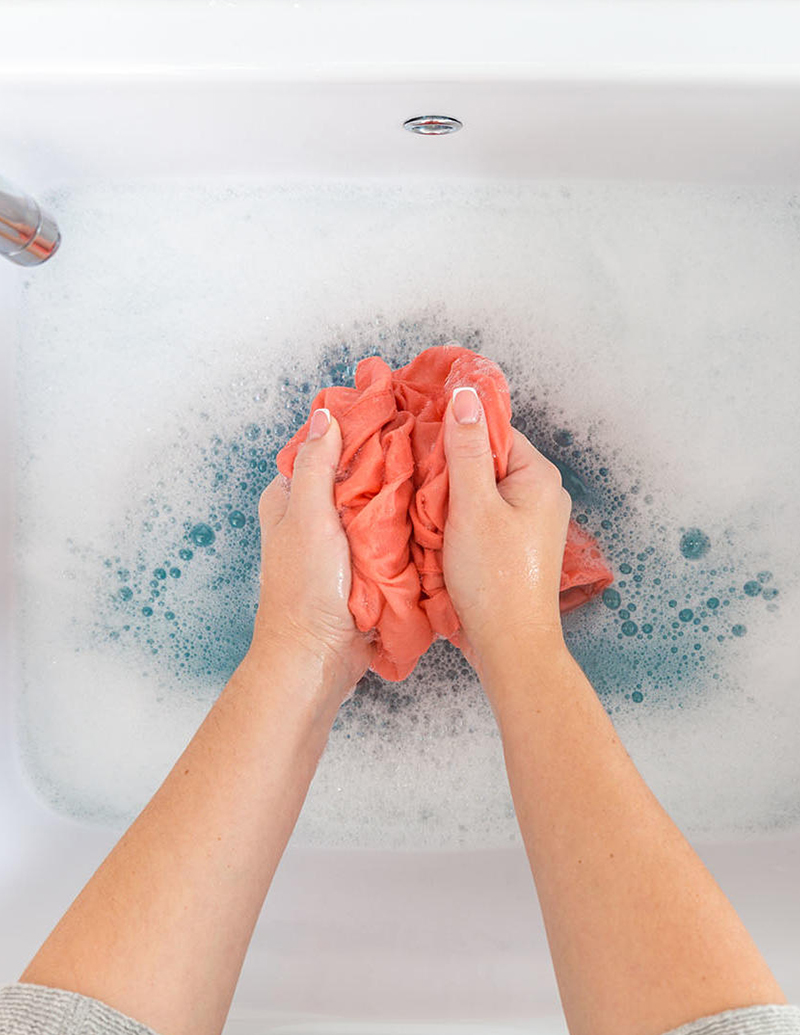
515-277-6250
705 Railroad Ave
W Des Moines, IA 50265

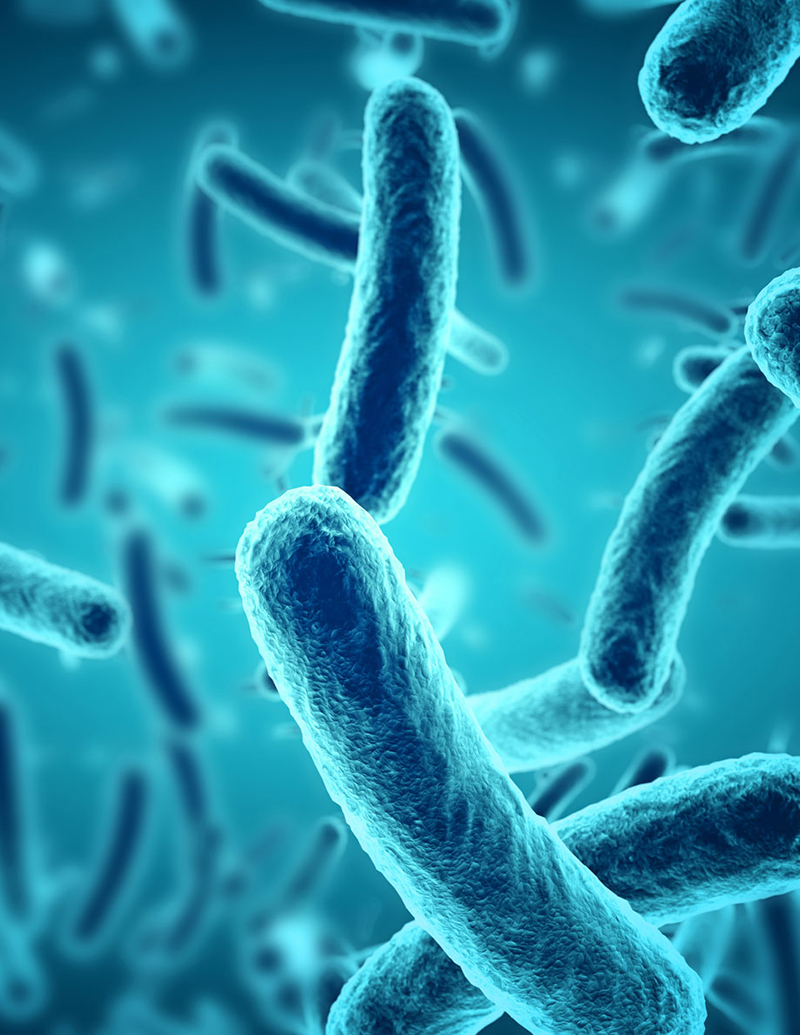

515-277-6250
705 Railroad Ave
W Des Moines, IA 50265
Hard Water
Hard water contains dissolved calcium, magnesium and, in many cases, iron. Most homes have hard water, whether it is supplied by a private well or a municipality. In many cases, homeowners don’t realize they have hard water or the constant and expensive harm it causes.
Many mistake the telltale signs of hard water and blame the problems on inadequate cleaners and detergents and poor performing appliances. Or they resign themselves to the fact that these problems are simply a way of life. Dry skin and hair, bathtub ring, spots on glass and silverware, dull, dingy clothing, disappointing performance and a shortened life expectancy of water-using appliances are all problems frequently caused by hard water. Most don’t realize how much time, money and energy is spent fighting the hard water battle.
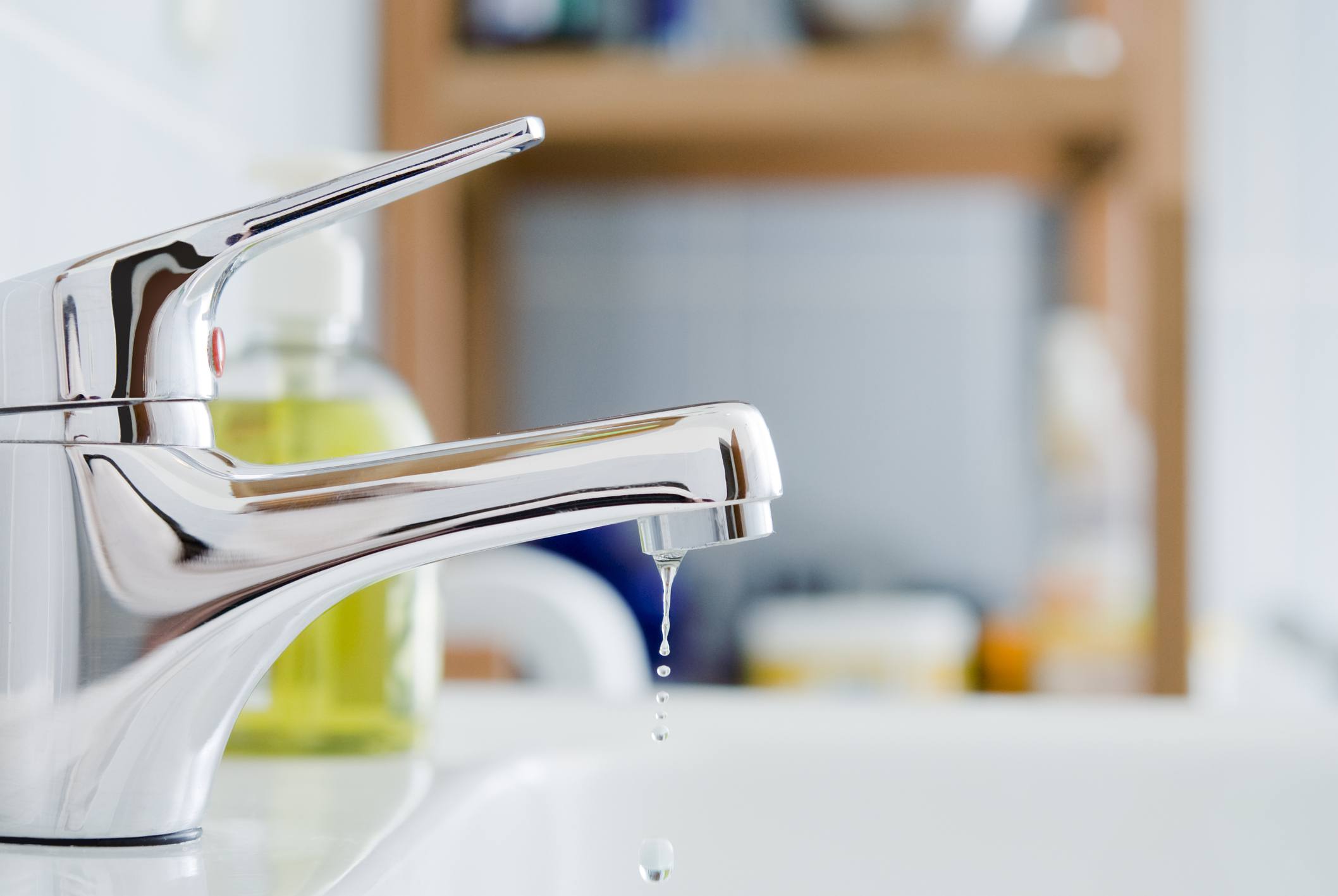

Hard Water
Hard water contains dissolved calcium, magnesium and, in many cases, iron. Most homes have hard water, whether it is supplied by a private well or a municipality. In many cases, homeowners don’t realize they have hard water or the constant and expensive harm it causes.
Many mistake the telltale signs of hard water and blame the problems on inadequate cleaners and detergents and poor performing appliances. Or they resign themselves to the fact that these problems are simply a way of life. Dry skin and hair, bathtub ring, spots on glass and silverware, dull, dingy clothing, disappointing performance and a shortened life expectancy of water-using appliances are all problems frequently caused by hard water. Most don’t realize how much time, money and energy is spent fighting the hard water battle.

Chlorine Taste and Smell
Since the 1850s, chlorine has been used as a disinfectant to kill harmful bacteria in water itself or the pipes that transport it. It has helped end a number of major threats to public health. Although chlorine in water is essential at the treatment plant and in the water distribution system, it is no longer necessary once the water reaches your home.
Though chlorine is vital for stopping the spread of disease, its benefits come at a price. Chlorine tastes and smells bad. It dries skin and hair, fades clothes (bleach is made of chlorine) and can dry out the rubber seals in appliances, shortening their lives.

Chlorine Taste and Smell
Since the 1850s, chlorine has been used as a disinfectant to kill harmful bacteria in water itself or the pipes that transport it. It has helped end a number of major threats to public health. Although chlorine in water is essential at the treatment plant and in the water distribution system, it is no longer necessary once the water reaches your home.
Though chlorine is vital for stopping the spread of disease, its benefits come at a price. Chlorine tastes and smells bad. It dries skin and hair, fades clothes (bleach is made of chlorine) and can dry out the rubber seals in appliances, shortening their lives.
Tastes and Odors
In its pristine state, water is colorless, tasteless and odorless. In fact, water that smells or tastes funny is the primary reason people turn to bottled water, which is expensive for you and harmful for the environment—millions of barrels of oil are used each year to produce and transport it and billions of plastic bottles are added to our landfills. So, if your water tastes or smells strange, you owe it to yourself to find out why.
Earthy or musty taste and odor:
These types of complaints are generally the result of compounds released due to decayed vegetation and are typically associated with different forms of algae. They are most prevalent in supplies that use surface water as their supply. While not toxic, they are nonetheless unpleasant and can be offensive at very low concentrations.
“Rotten egg” smell:
Another common source of smelly water is hydrogen sulfide. Hydrogen sulfide is a colorless corrosive gas that has the characteristic odor of rotten eggs. It is most commonly found in groundwater supplies and often is noticed coming from hot water tanks. It can occur naturally from deep in the ground or can be produced by sulfate-reducing bacteria. It can affect the taste of food and beverages, making them unpalatable. If present in high enough concentrations, it can leave an unpleasant odor on hair and clothing. It can also accelerate corrosion of metal parts in appliances. Because it is a gas, testing for it usually has to be performed onsite.
Metallic taste:
As the name implies, a metallic taste to your water indicates the presence of metals such as iron, copper, manganese or zinc. Iron and manganese are often naturally occurring and are predominantly found in groundwater. Copper and zinc can come from an aging water distribution system or the corrosion of copper plumbing and brass fittings.
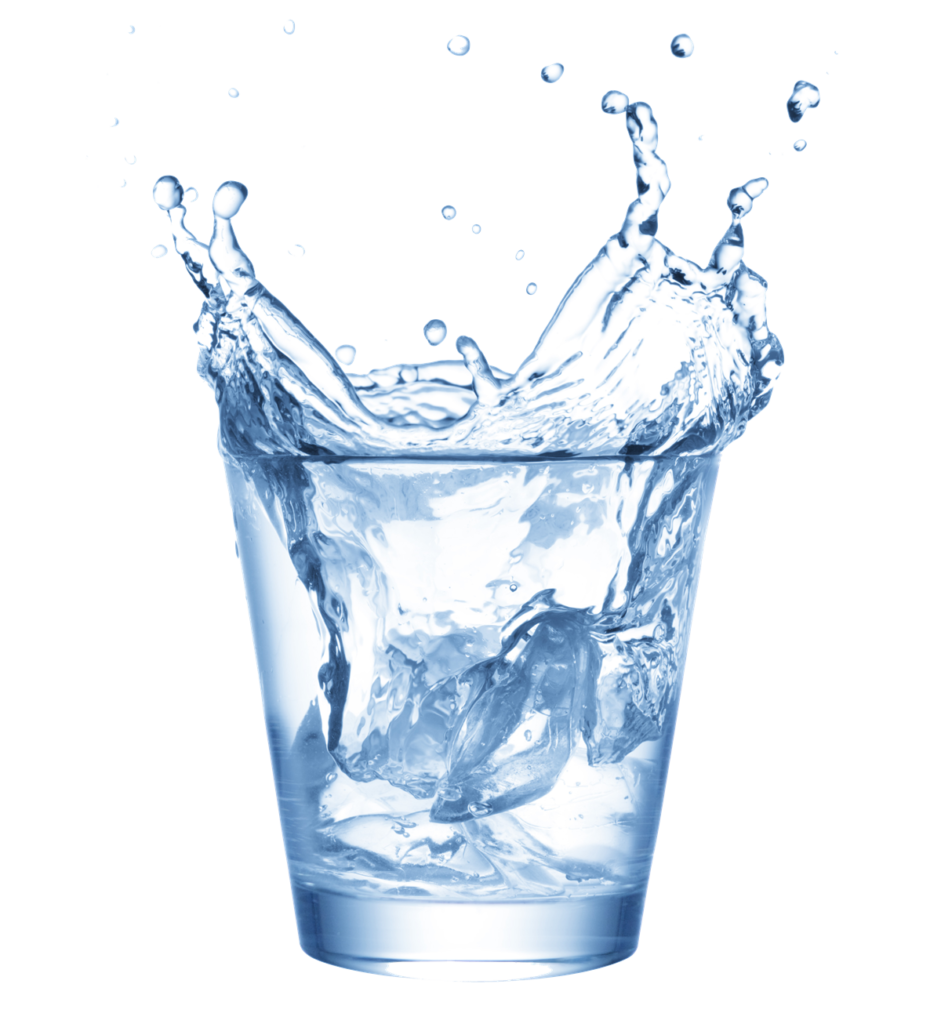

Tastes and Odors
In its pristine state, water is colorless, tasteless and odorless. In fact, water that smells or tastes funny is the primary reason people turn to bottled water, which is expensive for you and harmful for the environment—millions of barrels of oil are used each year to produce and transport it and billions of plastic bottles are added to our landfills. So, if your water tastes or smells strange, you owe it to yourself to find out why.
Earthy or musty taste and odor:
These types of complaints are generally the result of compounds released due to decayed vegetation and are typically associated with different forms of algae. They are most prevalent in supplies that use surface water as their supply. While not toxic, they are nonetheless unpleasant and can be offensive at very low concentrations.
“Rotten egg” smell:
Another common source of smelly water is hydrogen sulfide. Hydrogen sulfide is a colorless corrosive gas that has the characteristic odor of rotten eggs. It is most commonly found in groundwater supplies and often is noticed coming from hot water tanks. It can occur naturally from deep in the ground or can be produced by sulfate-reducing bacteria. It can affect the taste of food and beverages, making them unpalatable. If present in high enough concentrations, it can leave an unpleasant odor on hair and clothing. It can also accelerate corrosion of metal parts in appliances. Because it is a gas, testing for it usually has to be performed onsite.
Metallic taste:
As the name implies, a metallic taste to your water indicates the presence of metals such as iron, copper, manganese or zinc. Iron and manganese are often naturally occurring and are predominantly found in groundwater. Copper and zinc can come from an aging water distribution system or the corrosion of copper plumbing and brass fittings.
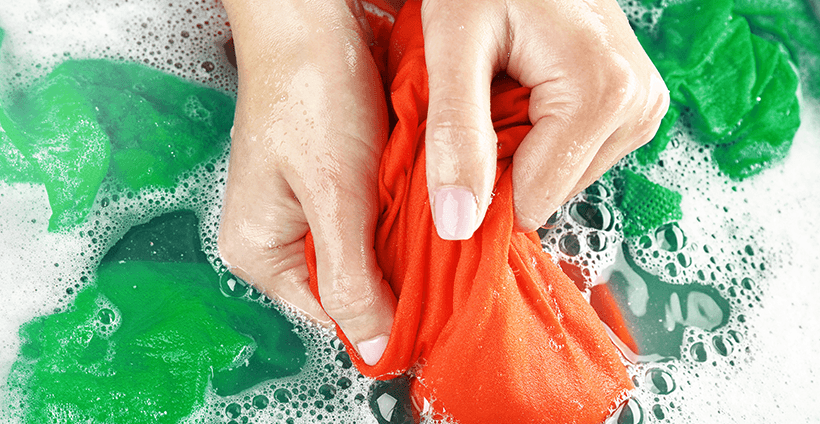
Iron and Low PH Staining
Water is a natural solvent, and given the needed time and conditions, it will dissolve anything it comes in contact with. That’s why, depending on where you live, your water can contain iron or manganese, which can cause rusty-orange or black staining. It can even alter hair color. Or if you have water that has a low pH, you can see the telltale, blue-green stains. You’ll see the stains on clothes, fixtures, sinks, tubs, water-using appliances and toilets.
Quite frankly, the stains can appear on anything the water comes in regular contact with. These stains are very difficult to remove, if you can get rid of them at all.

Iron and Low PH Staining
Water is a natural solvent, and given the needed time and conditions, it will dissolve anything it comes in contact with. That’s why, depending on where you live, your water can contain iron or manganese, which can cause rusty-orange or black staining. It can even alter hair color. Or if you have water that has a low pH, you can see the telltale, blue-green stains. You’ll see the stains on clothes, fixtures, sinks, tubs, water-using appliances and toilets.
Quite frankly, the stains can appear on anything the water comes in regular contact with. These stains are very difficult to remove, if you can get rid of them at all.
Bacteria and Viruses
According to the Centers for Disease Control and Prevention, there could be as many as 12 million cases of waterborne acute gastrointestinal illness annually in the United States alone. These illnesses are frequently caused by bacteria, viruses and protozoa that make their way into the water supply. And unfortunately, these contaminants can survive in the environment for months.
Even well operated, state-of-the-art treatment plants cannot ensure that drinking water is entirely free of microbial pathogens. System failures do occur, and not all systems are functioning at the levels they should. And bottled water, which is unregulated and varies considerably, may not offer any more safeguards against pathogens than tap water.
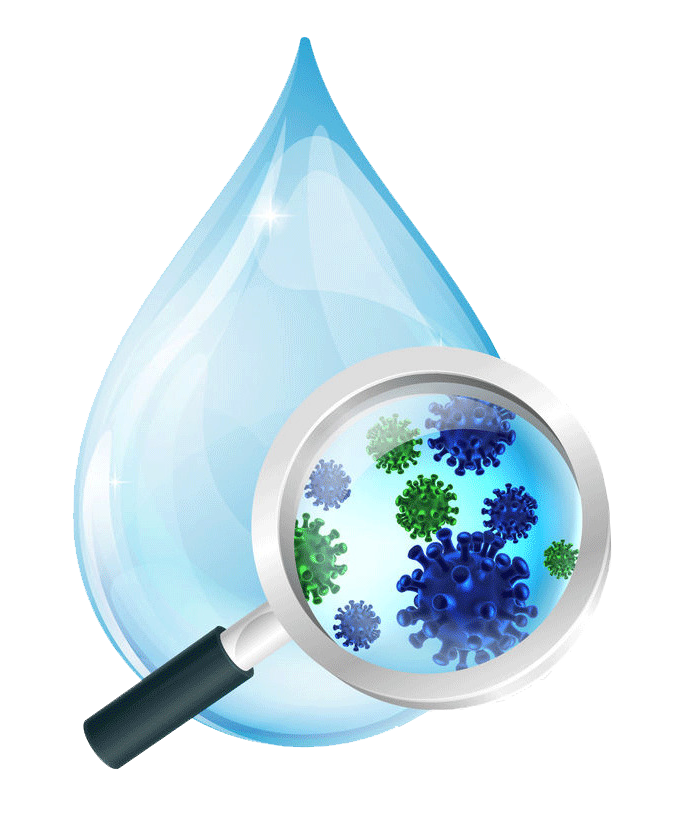

Bacteria and Viruses
According to the Centers for Disease Control and Prevention, there could be as many as 12 million cases of waterborne acute gastrointestinal illness annually in the United States alone. These illnesses are frequently caused by bacteria, viruses and protozoa that make their way into the water supply. And unfortunately, these contaminants can survive in the environment for months.
Even well operated, state-of-the-art treatment plants cannot ensure that drinking water is entirely free of microbial pathogens. System failures do occur, and not all systems are functioning at the levels they should. And bottled water, which is unregulated and varies considerably, may not offer any more safeguards against pathogens than tap water.
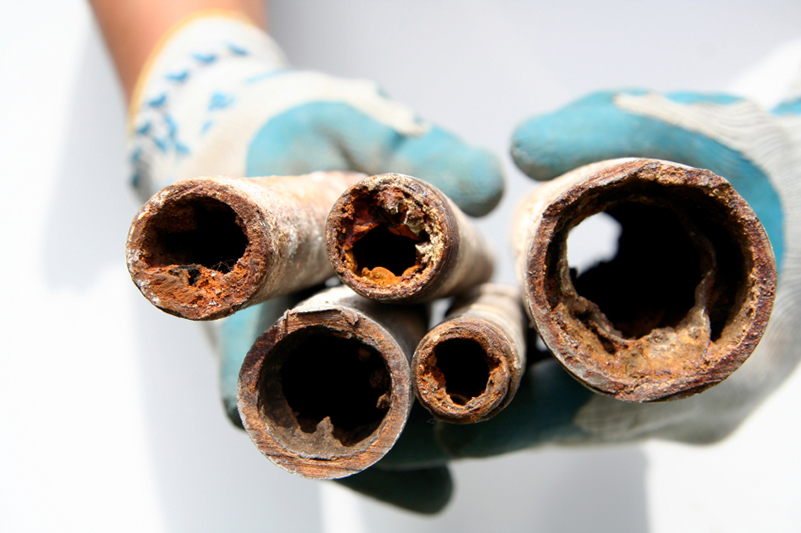
Scale
As water travels through the earth, it picks up minerals, like calcium and magnesium. Calcium and magnesium are found in most water supplies; when the water eventually enters your home and is heated, it forms a rock-like scale build-up.
Scale is obvious on shower doors and fixtures, but it will also form in places you can’t see. Common problem areas include water pipes and hot water-using appliances, such as your water heater and dishwasher. Homeowners frequently purchase expensive cleaners and chemicals to remove the scale, or chip away at it with sharp objects; however, they are often disappointed with the difficulty, expense and effectiveness of their efforts.
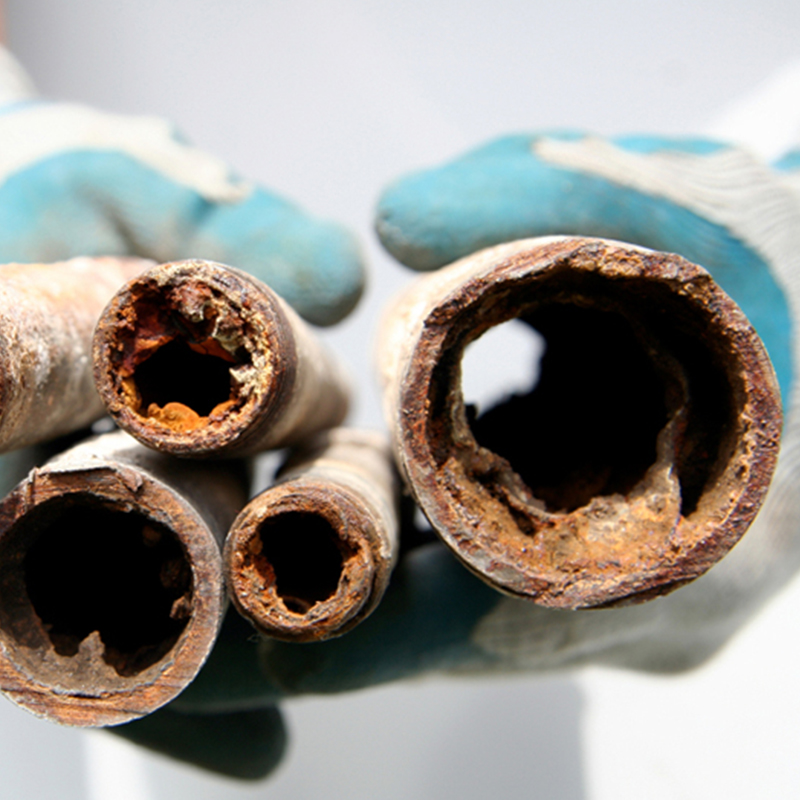
Scale
As water travels through the earth, it picks up minerals, like calcium and magnesium. Calcium and magnesium are found in most water supplies; when the water eventually enters your home and is heated, it forms a rock-like scale build-up.
Scale is obvious on shower doors and fixtures, but it will also form in places you can’t see. Common problem areas include water pipes and hot water-using appliances, such as your water heater and dishwasher. Homeowners frequently purchase expensive cleaners and chemicals to remove the scale, or chip away at it with sharp objects; however, they are often disappointed with the difficulty, expense and effectiveness of their efforts.
